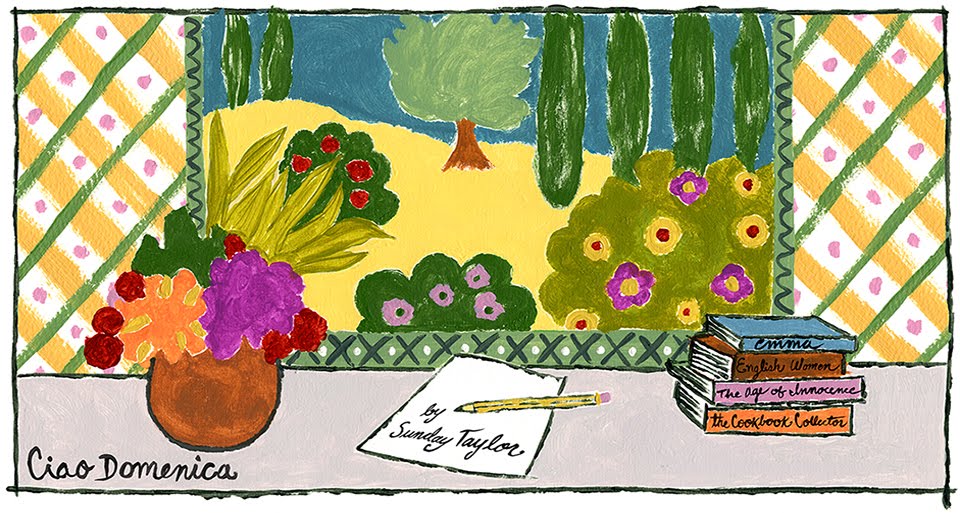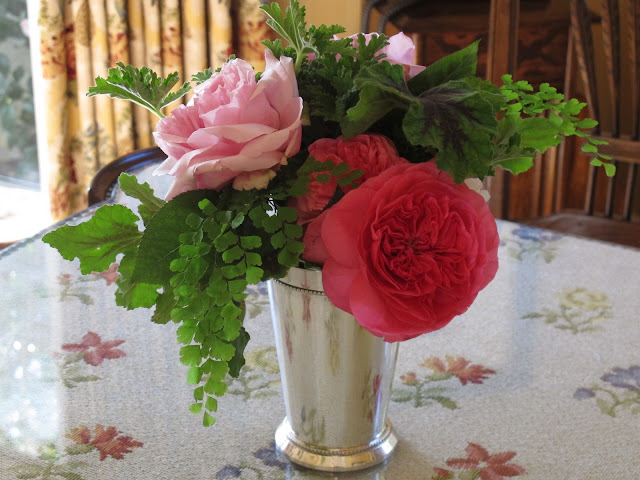I love books about gardens. There is something so hopeful about them. The writer often tell an inspiring story of dreams and goals. There is the search for the house with enough land for a garden. It can be small or big, it just has to feel right. Sometimes the land is bare or there already may be a garden, but it is awful and needs to be torn out. Then the dreaming begins and such exciting planning. Garden books are studied and advice is sought. The space needs to be plotted out and the soil has to be prepared.
The actual planting begins with all its mistakes, happy accidents, and well-thought out choices. There is the inevitable tearing out of things that didn't work, the advise from fellow gardeners, and the happiness at seeing something take root and flourish. Searching for garden ornaments is an ongoing project and designing garden structures such as arbors and pergolas is a creative part of the process. And oh what joy when treasures are found! Finding the perfect fountain to anchor the garden can be a glorious moment. There is the satisfaction as the years go by and the garden matures. One is in awe at the beauty and romance of the pear tree when it blossoms with the most beautiful and delicate white flowers. The result of all that effort is the peace and serenity of sitting in the garden and enjoying the magical retreat that has been created.
At this time of the year I love pulling out my favorite garden books. There are two kinds that I read. First, there are the how-to books. They have the lists of all the different kinds of roses, peonies, geraniums and any other flower you desire. They give advice on which vines will grow best on your pergola. They tell you what kinds of conditions that magnolia tree you want so badly requires. There are instructions on how to trim boxwood or how much sun your hydrangeas need. This information is necessary and crucial to figuring it all out.
But I also love reading the classic garden books such as those by Elizabeth Von Armin, Beverley Nichols and Frances Hodgson Burnett. These are not how-to books, but are instead inspiring reads about hopeful gardeners and dreamers. Often the story of the garden is a metaphor for discovering meaning and hope in their own lives. Somehow the garden helps them get there. It is the process and the work that allows them to forget about their problems. There is also the joy of being outside in nature with the sun warming their backs, the community of fellow gardeners they meet along the way, the visible results of their efforts, and the paradise they have created that leads them to a greater state of happiness. It is as if creating a garden is a formula for finding happiness.
As I looked at our garden in the shadows of a late afternoon on a recent day in January, I remembered the days when it was just a dream. I have to say that much of its creation is due to the wonderful books about gardens I have been reading most of my life. Spending time out here on a warm summer day with a good book or just dreaming about the next new plant to introduce into the garden is true happiness.

















































